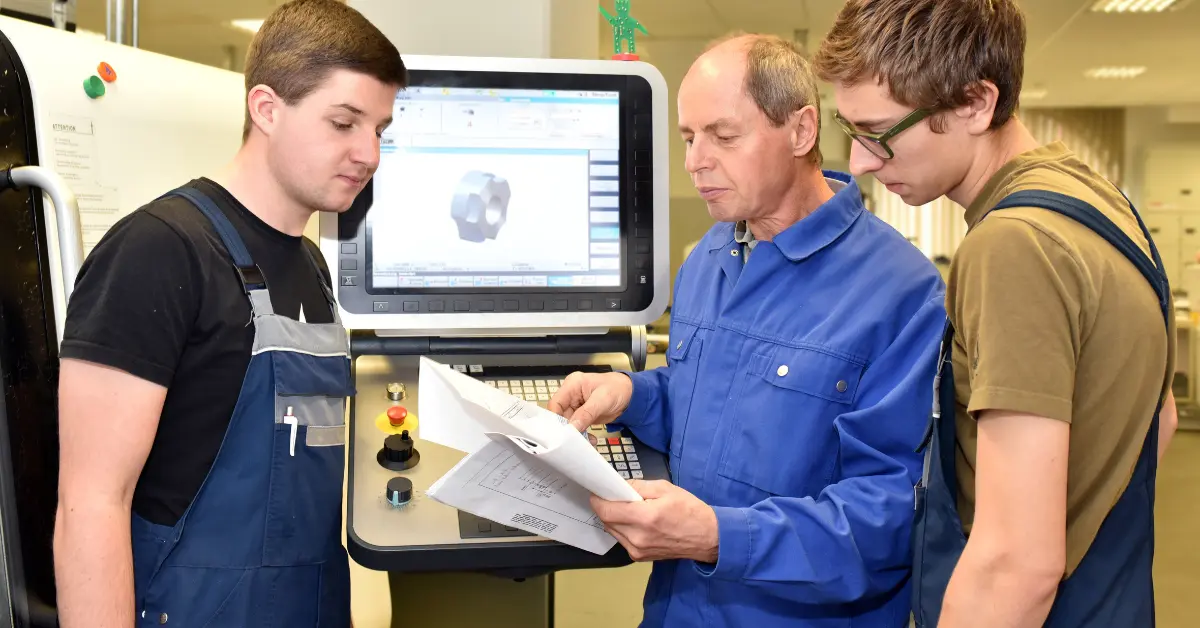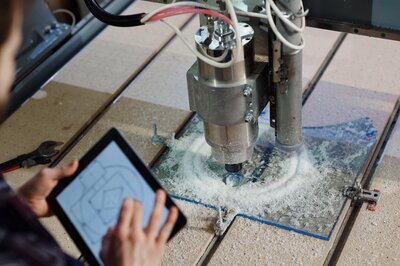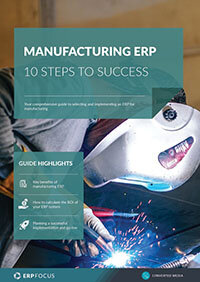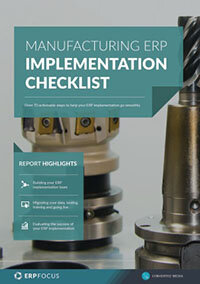Shop floor management: 4 ways ERP can improve efficiency
The shop floor in many manufacturing businesses is hidden from the individuals who make ERP system choices. It's also where ERP users add real value to real products. These people are essential to enterprise resource planning, and giving them effective shop floor ERP tools helps the whole organization work better.
Since this article was originally published, the shop floor has become much more connected: inexpensive IIoT adapters, open protocols, tablets at workstations, and integrated data collectors let ERP systems receive near-real-time signals from machines and operators.
That shift makes it realistic to automate shop floor data collection and feed ERP with real-time manufacturing data collection that improves planning, quality, and dispatch.
1. Technical document management
Technical drawings and documents tell shop floor staff how products and components are assembled or mixed. Standardizing those processes is one way to control quality.
Paper still causes errors. Many shop environments are dirty or greasy, yet people must fetch paper documents and follow them. Smudged measurements and out-of-date drawings lead to rework. When workers carry documents between jobs, revisions can be missed.
Attach current technical documents and step checklists directly to operations and sequences in the ERP and present them on shop-ready interfaces (tablet, rugged terminal, or machine HMI). Require quick confirmations (checkbox, timestamp, barcode scan, or photo) at critical steps and store those confirmations against the work order. That ensures audits can trace which version of an instruction was used for each unit or batch.
2. Movement requests
Many facilities still rely on loudspeakers and manual calls to coordinate material movement. ERP can eliminate that noise and make material flows visible.
Set up move requests in ERP before and after operations. Show material handlers a filtered list of requests on a tablet or in a vehicle dashboard.
Combine that with barcode or RFID scanning on pallets and bins so handlers confirm transfers with a scan; ERP updates stock location and WIP status automatically. This approach automates shop floor data collection for material flows and removes manual transcription errors.
3. Regulatory compliance
Certain shop floor work requires operators with specific training or certifications. Make ERP the single source of truth for qualifications and enforce dispatch rules.
Add certification fields to employee profiles and display expiration dates on the shop interface.
When dispatching work, surface only the tasks for which the operator is qualified. If an unqualified user attempts to log time, the system blocks the transaction and alerts supervisors. Integrate ERP with HR or a learning management system to avoid duplicate records and ensure the operator context is included in production events.
4. Collecting real-time shop-floor data
Decide which data streams matter and start small. Useful items include machine status (running, idle, fault), cycle counts, scrap counts, operator start/stop times, material moves, quality check outcomes, and environmental readings (temperature, humidity) where relevant. Automate capture where possible and use human inputs only for context and exceptions.
Recommended architecture:
- Connect machines with IIoT adapters and use open standards (for example, MTConnect or OPC UA) to gather machine telemetry.
- Use edge collectors to normalize data and send relevant events to ERP in near real time.
- Provide operators with simple OEE/status screens on machines or tablets so they can add reason codes and scrap causes quickly.
Immediate gains to measure:
- Reduced data lag: Decisions based on real-time manufacturing data collection.
- Faster reaction to stoppages (less unplanned downtime).
- Fewer administrative errors from manual entry
In a nutshell, use ERP as the hub and automate your shop-floor data collection at the edges
Technical document management, automated movement requests, and certification tracking remain core ERP strengths.
Stop relying on paper and shout-outs; begin to automate shop floor data collection so the ERP receives near-real-time manufacturing signals. That shifts the team from firefighting to continuous improvement.
Free white paper

Top 10 Manufacturing ERP Software Comparison
Compare the best manufacturing ERP systems

Featured white papers
Related articles
-

4 training tips for manufacturing ERP success
These four training tips will help your employees get the most out of your new manufacturing ERP ...
-

CMMC Compliance: What Aerospace and Defense Manufacturers Need to Know
Key insights on CMMC compliance, deadlines, and securing DoD contracts with CMMC 2.0 certificatio...
-

ERP for make-to-order manufacturing
How can ERP help your make-to-order manufacturing business thrive?



